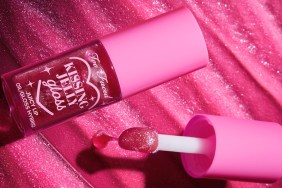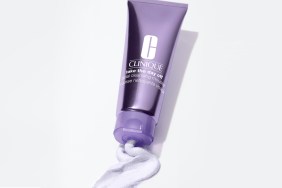Coconut oil — miracle product or just the latest fad in natural beauty? For the last couple of years, coconut oil has been touted by organic lovers everywhere from the Midwest to New York City. It’s supposed to be an amazing and affordable way to keep your skin ultra soft and smooth, your cuticles healthy and even has the ability to replace all those tubes of lip balm you have hiding out in your bags and office desk drawers. But does it live up to the hype? The short answer is yes, that is for those of us with normal skin that isn’t prone to breakouts or clogged pores and isn’t too dry. Read on to find out why women are ditching their expensive brand name products for a bottle or tub of the stuff they can buy at Whole Foods and other natural grocers.
How It Works
It starts with saturated fatty acids that are inherent in organic, natural coconut oil. If you decide to give it a try, do make sure you’re buying unprocessed varieties that haven’t been deodorized or treated in any other way. Look for “organic” and “virgin” on the label. The type of fatty acids in coconut oil work in some very real, beneficial ways for your skin. They help retain your skin’s natural moisture, unlike many moisturizers on the market that contain water, often stripping skin’s moisture. Coconut oil works as a topical lotion with no added chemicals or preservatives. The second benefit comes from three specific fatty acids that have strong anti-fungal and antimicrobial properties. A third benefit is vitamin E, which has long been known to keep skin healthy and have anti-aging benefits. Furthermore, coconut oil contains proteins that help with skin cell health.
[ 7 Reasons Why You Should Use Coconut Oil for Hair ]
How It Doesn’t Work
When you’re doing your own research, you’re likely to come across claims that coconut oil reduces stretch marks and can be used as sunscreen. Well + Good reports that while there’s nothing wrong with putting it on stretch marks, it doesn’t affect elasticity of skin. So, pregnant women shouldn’t consider it preventative. You might also read that locals in coconut-bearing countries use it as sunscreen. The FDA doesn’t approve of it for this use, however, and while there may be a low SPF number, it doesn’t override the oil’s ability to fry your skin in the sun, canceling out the benefit. Coconut oil also happens to be comedogenic, which means it can clog pores. If you’re not prone to blackheads or whiteheads and have normal skin, this shouldn’t be a problem for you. But if you are, you might want to consider a natural moisturizer that contains coconut oil to reap some benefits without exposing yourself to a clogging mess. Women with ultra dry skin may want to consult their doctors to get prescription cream. Coconut oil absorbs into skin and keeps it soft, but dry, flaky skin may find that it doesn’t go deep enough to fix the problem. Shaving cream is another common claim. While it can work to lubricate and moisturize skin during shaving, go slowly. Unlike foam, it’s awfully slick in the shower.
How to Use It
Now to the fun part. How can you use this stuff, potentially saving yourself hundreds (yes, hundreds) of dollars over a year by skipping other beauty buys? Check out the list below.
- Facial Highlighter: A tiny amount on your fingertip spread on top of your cheekbones after you’ve applied makeup, works to highlight and add an extra glow.
- Massage Oil: The oil absorbs quickly, but not ultra fast, which means it keeps your hands slick when you’re giving a back massage. Did we mention that coconut oil smells amazing? Like a beach vacation? Because it does.
- Body Balm: Mix coconut oil with Shea butter to treat yourself to your own massage that keeps your skin soft and smooth long after the rub is over.
- Body Scrub: Add a little sugar to the oil and you’ve got an awesome, all natural, exfoliating and moisturizing scrub that rivals a spa experience.
- Hair Mask: Try one of these DIY coconut oil hair masks to help moisturize, repair and add shine to hair.
- Hand Moisturizer: You might not want to do this on-the-go. But at home, when you can wait for it to sink in, it works to keep your hands soft.
- Lip Balm: Just a small amount applied to lips keeps them soft and kissable.
- Cuticle Cream: Keep fungus and bacteria at bay, while also softening your cuticles, by rubbing it into them during manis and pedis.
- Makeup Remover: This works fast, but be careful. At Fashionista, one writer tried it and, while she said it worked better than store-bought removal pads, she experienced some irritation afterward. Though, no real harm was done. Just a bit on a cotton pad does the trick.
- Facial Moisturizer: As stated, this works best for normal skin types. If you’re not sure, try applying a thin layer of oil to your face, massaging it in and then rinsing it off with your cleanser. This may prevent breakouts. But as always, our word is not your doctor’s, so ask him or her first!
[ Next: That Oil Pulling Thing: Explained ]








